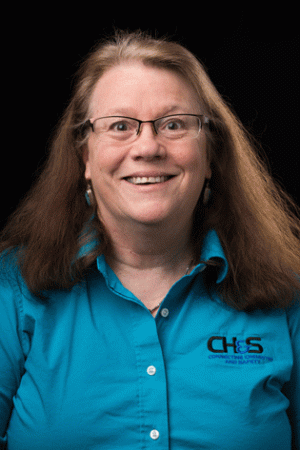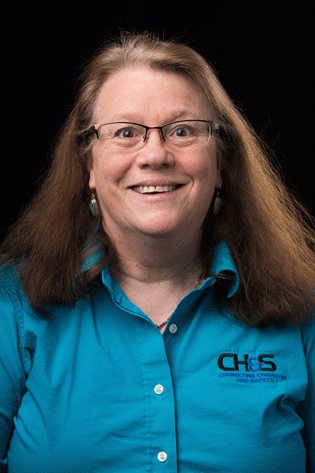Appalachian Senior Lecturer, Samuella B. Sigmann, co-hosts International webinar for the American Chemical Society.
In March, Samuella Sigmann (Sammye) presented a webinar, titled “Reshaping Chemical Lab Safety: Creating a Dynamic and Adaptive Safety Environment.” The webinar was designed to address lab safety in the increasingly varied spaces of chemistry lab research. Sigmann and her co-host Ralph Stuart proposed “a new way of thinking that builds a dynamic safety system based on your own needs and conditions.”
Participants learned how a 21st century strategic direction could be implemented to support laboratory chemical safety both for academics and industry.They were introduced to recent documents that achieve a spiral approach to chemical safety education and received tools and resources for chemical safety planning in all lab environments. According to Sigmann, “Twenty-first century lab safety is moving from ‘rule-based’ to ‘risk-based’.” To build a better safety system, Sigmann has been incorporating risk assessment into the curriculum for chemistry students at Appalachian for the past five years.
Sigmann has been a member of the American Chemical Society Division of Chemical Health & Safety (CHAS) since 2006 and has been active on their Executive Committee since 2010. She is currently the Chair Elect for the division and will serve as Chair in 2019. In 2016 she was recognized with the CHAS Tillmanns-Skolnick Award for service in managing the divisions Administrative Manual.
She is an associate member of the American Chemical Society (ACS) Committee on Chemical Safety (CCS) and has assisted on several high impact projects for this committee such as Identifying and Evaluating Hazards in Research Laboratories and Safety in Academic Chemistry Laboratories. She is also an active member on the Safety Committee in the ACS Division of Chemical Education (DivCHED).
The American Chemical Society was founded in 1876 and chartered by the U.S. Congress. There are currently 150,000 members and it is often recognized as one of the largest professional society. It’s mission is to “advance the broader chemistry enterprise and its practitioners for the benefit of Earth and its people.” ACS works nationally and internationally to promote chemistry, working to bring leading and authoritative scientific information to professionals, organizations, teachers, students and the population at large. They publish over 50 peer-reviewed journals, post job listings and host educational opportunities.
Sigmann has thirty plus years of experience teaching in the chemistry department at Appalachian State University. She holds a BS in Chemistry and Biology, a MA in Chemistry from Appalachian and a MS in Occupational Safety & Health. She is a certified Chemical Hygiene Officer (CHO) from the National Registry Certified Chemists. She currently holds multiple positions as Appalachian as a Senior Lecturer, the Stockroom Director and the departmental CHO.
###
About the Department of Chemistry
The Department of Chemistry offers a Bachelor of Arts, plus the Bachelor of Science, with eight different concentrations. The department’s programs prepare students for the chemistry and pharmaceutical industries, professional schools, graduate school, teaching and more. Learn more at https://chemistry.appstate.edu.
About the College of Arts and Sciences
The College of Arts and Sciences is home to 16 academic departments, two stand-alone academic programs, two centers and one residential college. These units span the humanities and the social, mathematical and natural sciences. The College of Arts and Sciences aims to develop a distinctive identity built upon our university's strengths, traditions and unique location. Our values lie not only in service to the university and local community, but through inspiring, training, educating and sustaining the development of our students as global citizens. There are approximately 5,850 student majors in the college. As the college is also largely responsible for implementing Appalachian's general education curriculum, it is heavily involved in the education of all students at the university, including those pursuing majors in other colleges. Learn more at https://cas.appstate.edu.
By: Johnna Reisner
April 20, 2018
BOONE, N.C.

